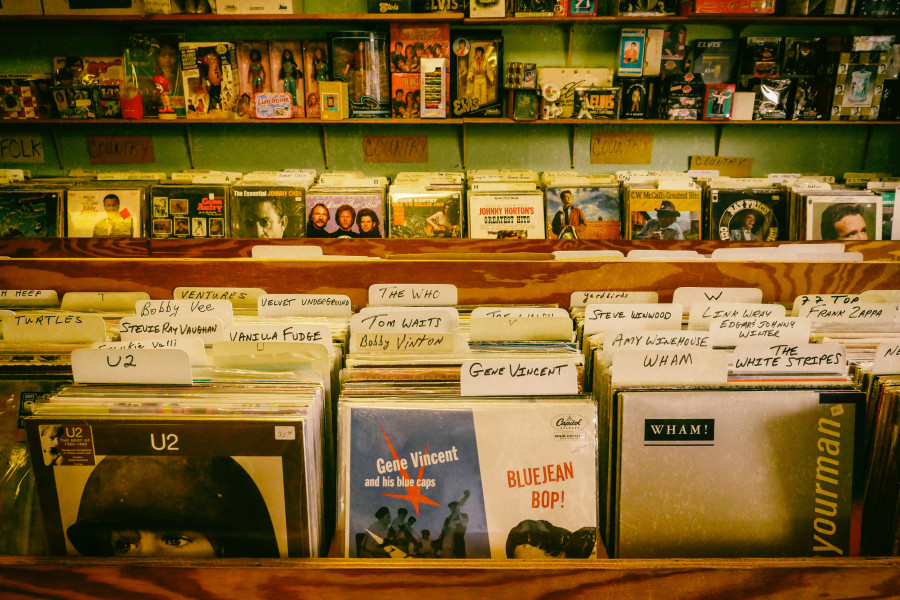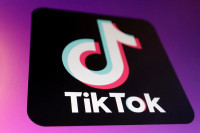Science & Technology
CD and DVD stores were once thriving. Not anymore.
With high-speed internet available at affordable prices, physical mediums are no longer a necessity. The internet has all but made them obsolete.
Prajesh SJB Rana
Inside a forgotten cabinet underneath my computer table resides heaps of CDs and DVDs. They are stacked neatly into groups of software, games and movies. I haven’t visited these disks in a long while and going through them, I find odd offerings like a Hindi-dubbed version of Harry Potter and the Prisoner of Azkaban and a South Korean film Ditto. Obscure games like ‘Hydrophobia’ and ‘Great Battles of Rome’ stand out from multi-disk packs of more recent and popular games like ‘GTA V’ and ‘Max Payne’.
These are DVDs collected over a span of many years—many bought, many borrowed. Today, even if I wanted to partake in the digital offerings of these disks, I wouldn’t be able to because my computer has long since abandoned disk support, with data transfers solely designated to more modern digital mediums like pen drives and external hard disks.
For the CDs and DVDs I needed, I frequented a few stores in Mahaboudha. And that is why one day I decided to take a trip down there, a once-flourishing market for these physical media (mostly selling pirated copies), to see what had become of them. I wasn’t surprised at what I found.
With the gradual phase-out of the DVD, most of the disk stores I frequented as a teenager had transformed into electronic shops. Only one of the old shops remained in business with an antiquated library of games and films.
“It’s a failing business,” said the owner of the store, who asked that he not be named since he was selling pirated content. “Many stores have closed down because people don’t buy physical disks anymore.”
With high-speed internet available at cut-rate prices, physical mediums are no longer a necessity. While in the past, disks were the most common and popular form of accessing new content, the internet has all but made them obsolete. Today, we listen to music on YouTube, watch movies through various streaming sites, and download software and games.
The move to digital mediums of data transfer can also be attributed to a culture of convenience. While I might look at physical mediums through rose-tinted glasses of nostalgia, I won’t deny they came with their own share of problems. Physical disks would get scratched a lot, requiring a borrowed disk to undergo a thorough cleaning with toothpaste and water in hopes of getting it to work. If that didn’t work, many local disk stores offered disk cleaning services that would revitalise old scratched-up disks.
.jpg)
Physical mediums also worked with physical space, which meant a limit on storage. DVDs with 4.7 GB storage space cost Rs 50, but a single disk wasn’t enough to store modern games and software.
“People don’t even buy clothes and electronics physically anymore, what does that say about digital data? Everything can be easily ordered online from the comfort of people’s rooms, so why would they want to get out?” said Sujan Tamang, owner of the Game and Gadget store in Bishal Bazaar. His inventory of disks has shrunk to PlayStation and Xbox games, which still come in disk forms. Modern consoles are harder to crack, which is why Tamang still has original game disks available, but those too are a difficult sell, says Tamang.
“Producing physical mediums costs money and requires infrastructure to support them,” he said. “This incurs a certain cost, something which digital means of data distributions don’t suffer from. Downloading games and software online also means that people get the latest versions while buying disks would still require major, data-heavy updates that would need to be downloaded anyway. Because of this, it has become more convenient for people to buy console games online, as they tend to be cheaper thanks to promotions and flexible pricing.”
When I was young, I used to visit friends to swap disks with. Today, none of my friends have disks anymore; most use a laptop without a disk drive and play downloaded games on consoles.
“The days of disks are gone,” says Aditya Shrestha, one of the friends I used to swap with. “Even integrated software doesn’t come in disks anymore. I bought a MIDI controller and they just sent me a link to download their software.”
Digital stores have also become more robust with PlayStation and Xbox offering their own online stores. There are many more game stores for the PC, like Steam, GOG and Origin. Media too has now found a home on digital streaming services like Netflix, Hulu and Spotify.
But for Nepali users, the main problem in getting these services revolves around the payment. To cater to a growing population of people trying to access digital marketplaces, local businesses have taken to selling gift cards for specific services online. Much like a recharge card, online accounts can be topped up using gift cards, so online marketplaces like Gift Cards Nepal offer cards of varying amounts for services like Netflix, the PlayStation Store, Steam and iTunes.
And with payment methods opening up for Nepali users, we soon might even have access to legitimate legal content, rather than looking for illegal avenues like pirated DVDs and downloads off torrents.




 9.12°C Kathmandu
9.12°C Kathmandu










